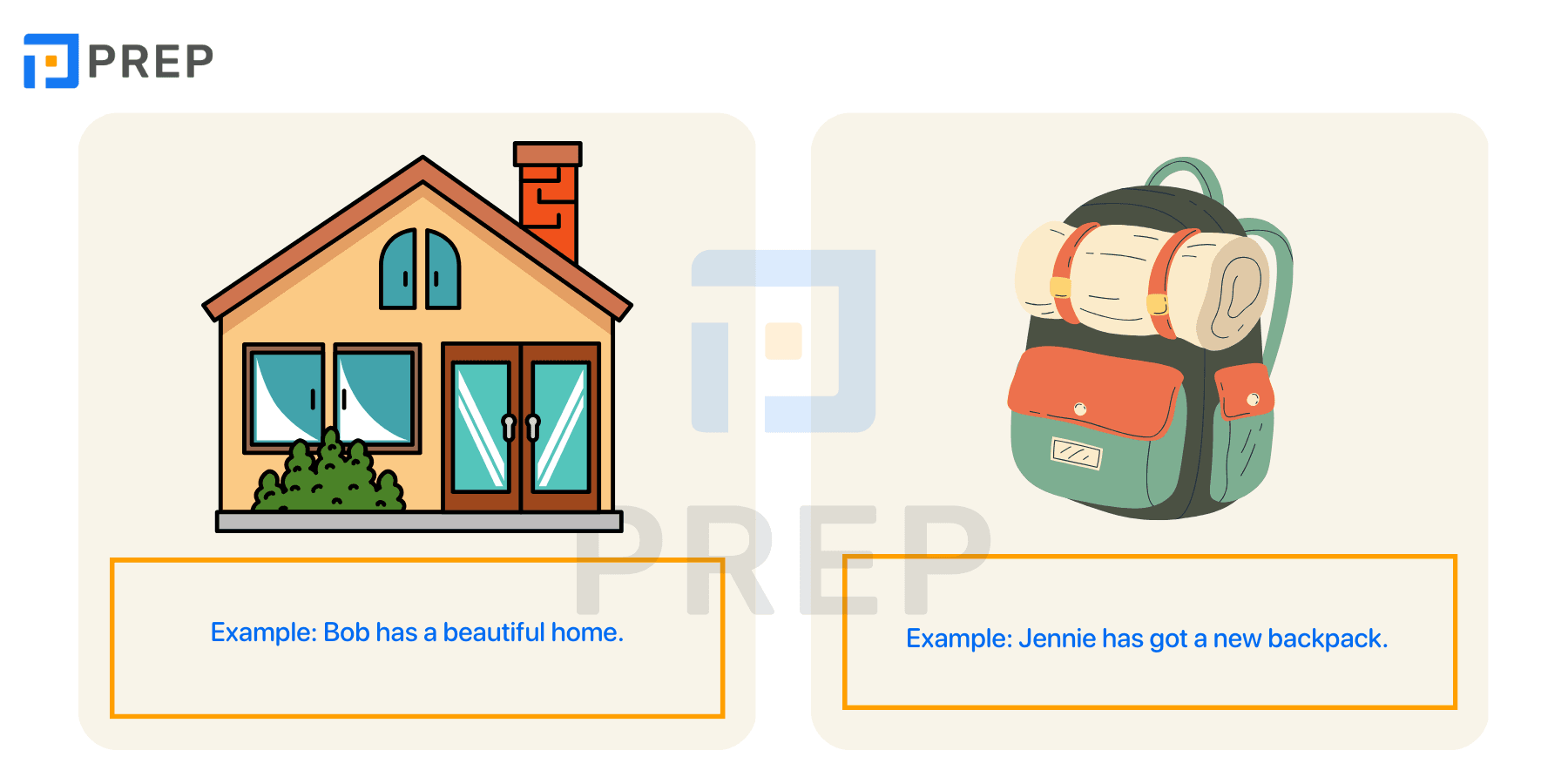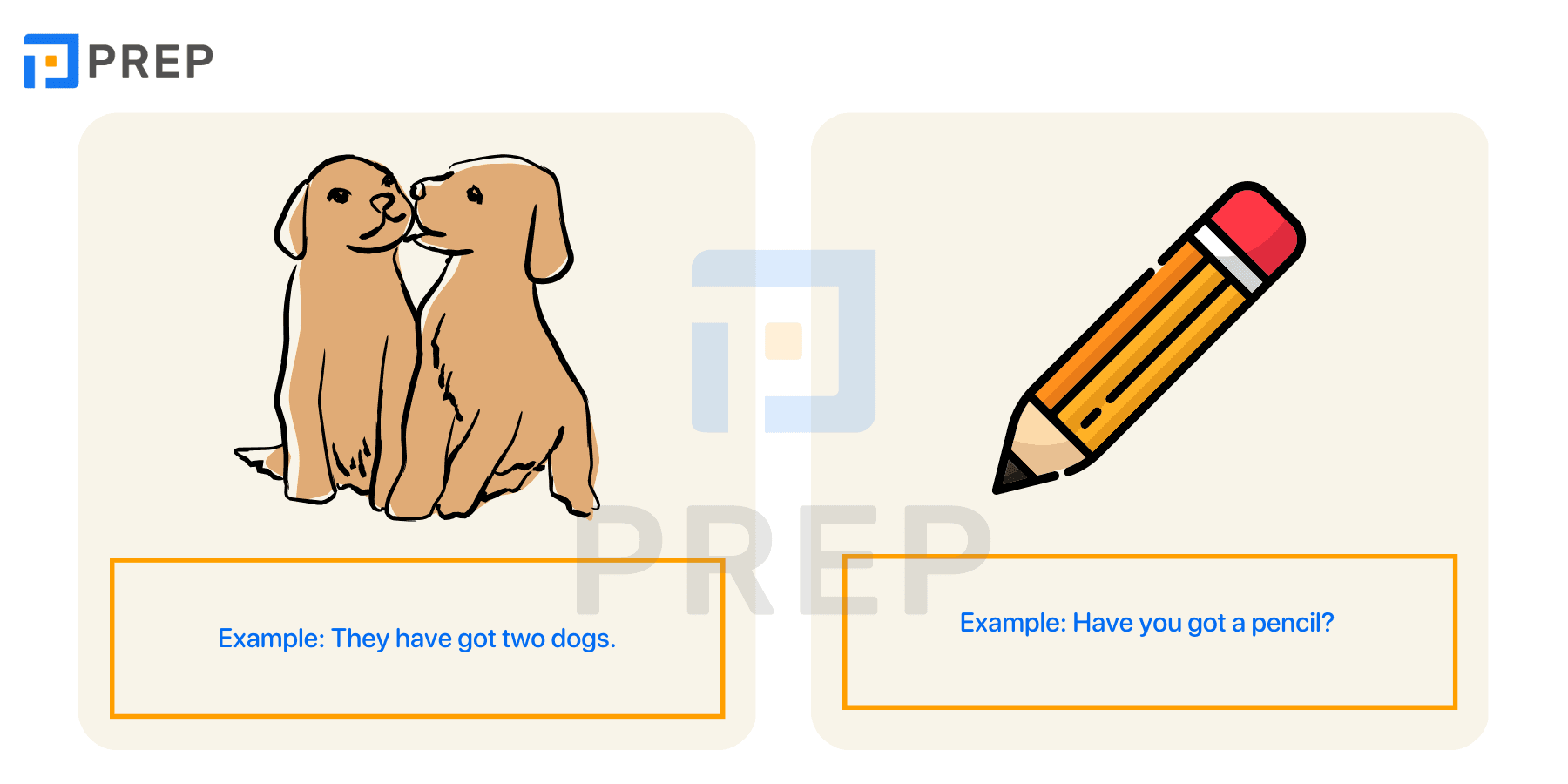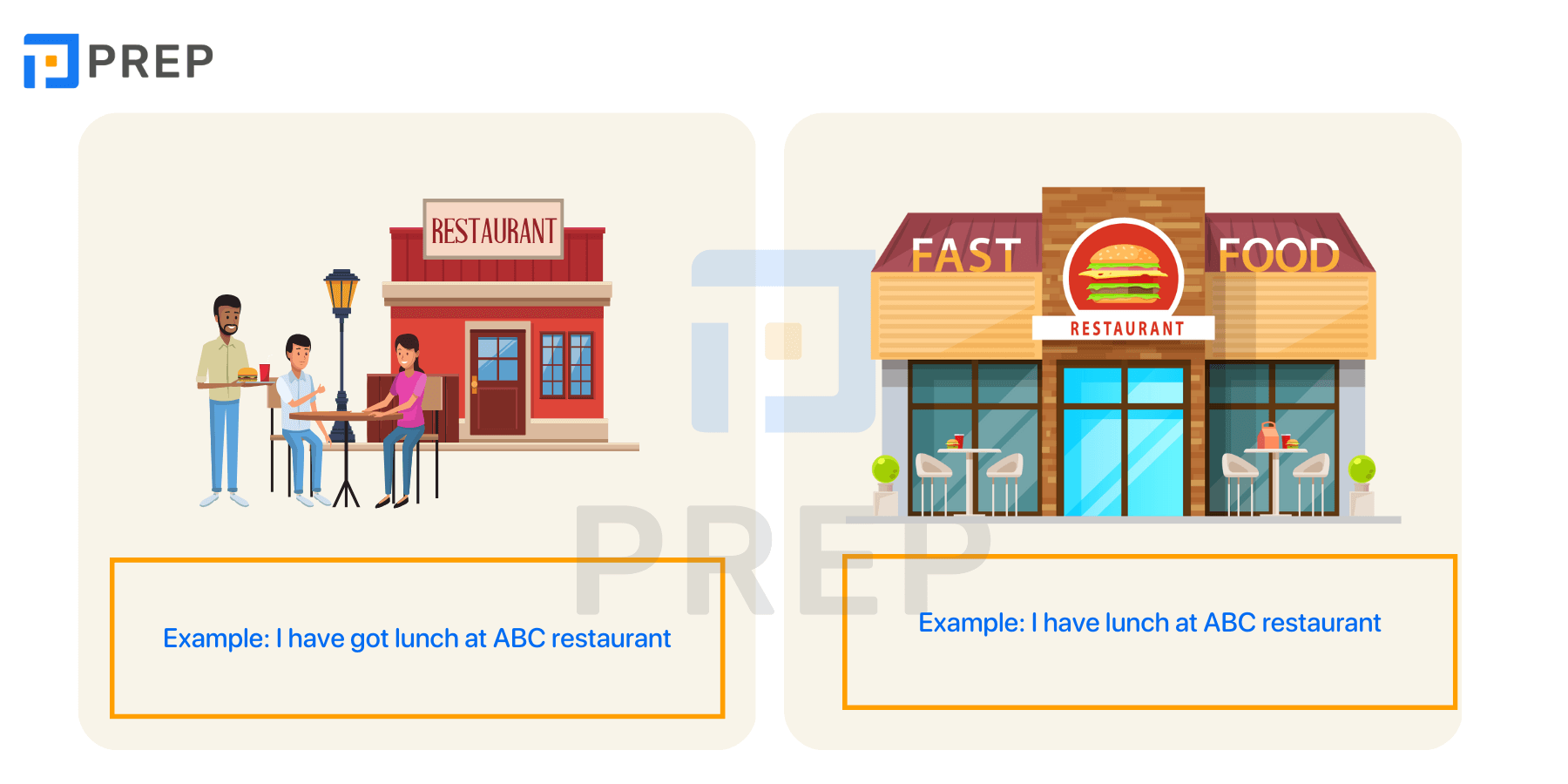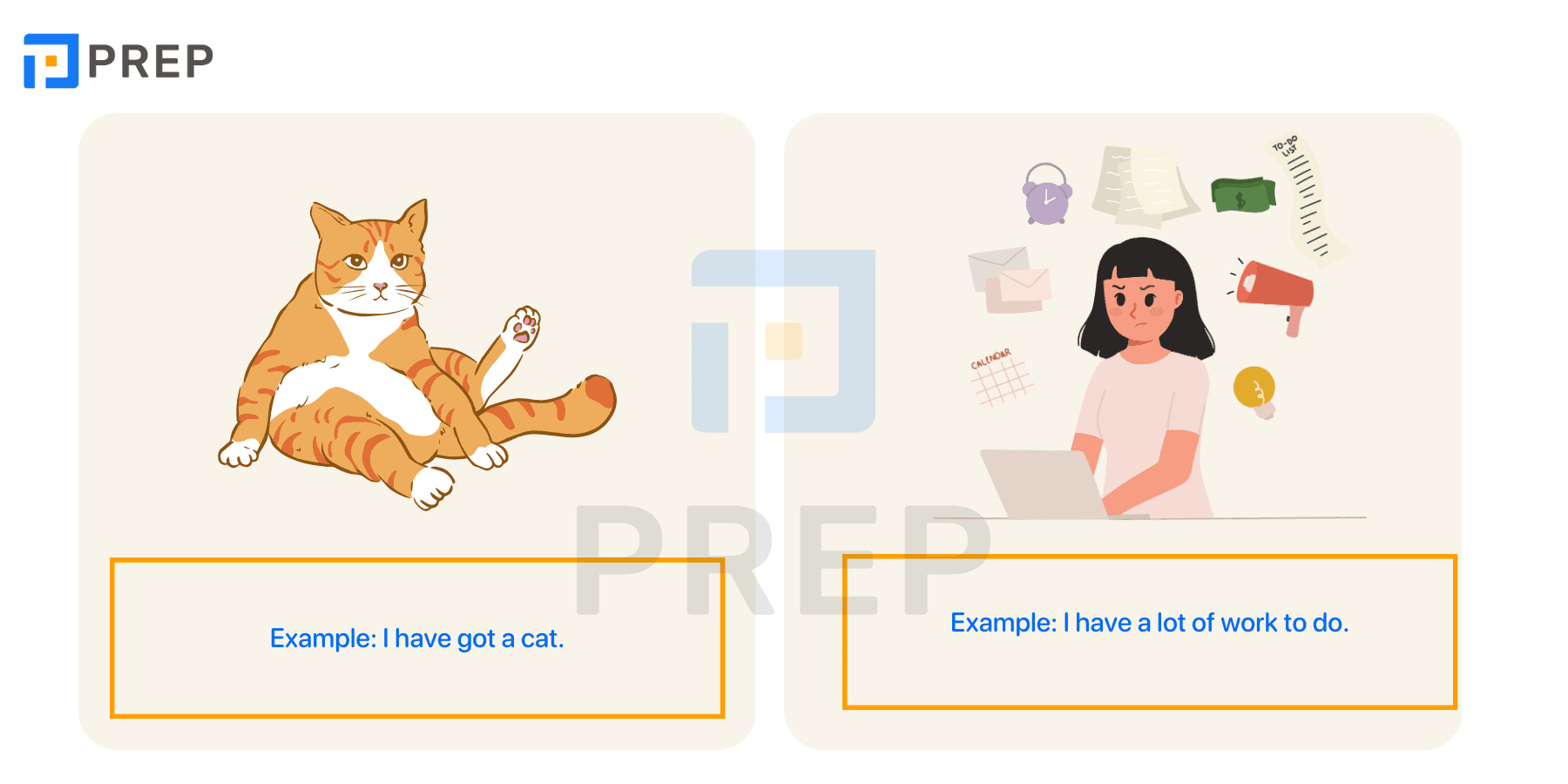Have Got in English: A Complete Guide to Master This Essential Grammar Structure
Understanding "have got in English" represents a fundamental step toward achieving natural fluency in contemporary English communication. This grammatical structure, while seemingly simple, carries nuanced applications that distinguish casual conversation from formal discourse, making it an essential component of your English language toolkit.

I. What is Have got in English?
"Have got" is a present-tense English expression used to indicate possession, characteristics, or necessity/obligation. When exploring the have got meaning, we discover it combines "have" and "got" and serves as a conversational alternative to "have" in many contexts, especially in British English.
-
Jennie has got a new backpack.
-
I've got to finish my homework.
This structure is common in informal speech and helps convey not just facts but also emphasis or urgency. The have got explanation reveals that this construction functions primarily in present-tense situations where speakers want to emphasize current possession or immediate obligation.

Common Usage Scenarios
|
Usage Type |
Examples |
Purpose |
|
Physical Possession |
I've got a laptop. They've got two cars. |
Showing ownership of tangible things |
|
Abstract Qualities |
She's got great ideas. You've got talent. |
Expressing personal traits or abilities |
|
Obligation/Necessity |
I've got to go. We've got to try again. |
Indicating duty or strong necessity |
|
Fixed Expressions |
I've got it! You've got me there. |
Used in idiomatic phrases and quick replies |
II. The usage of Have got in English
Join PREP to explore how to use "have got in English" right below! Understanding proper formation patterns helps you apply this construction correctly across different communication contexts.

|
The usage of Have got in English |
Formula |
Example |
|
Affirmative form |
S+ have/has got + O. In which:
|
|
|
Negative form |
S + have/has + not + got + O. In which:
Note: The abbreviation of Have got
|
|
|
Interrogative form |
Yes/No question: Have/Has + S + got + Objects? Wh-questions: When/Where/Why/How… + have/has + S + got + Objects? |
|
III. Differentiate Have and Have got in English
At first glance, "have got and have" may seem to have the same meaning, so they should have similar usage, right? However, let's differentiate the "have got in English" structure from "have" in the following aspects together with PREP.

|
Criteria |
Have got |
Have |
|
Formality levels |
Have got is originated from British English and is commonly used in spoken language. It is a shortened form of "have gotten" in modern times. |
"Have" is usually used in everyday situations or in situations requiring formality and politeness. |
|
Abbreviation |
Have got is often abbreviated as "'ve got" in sentences. |
"Have" is rarely used in abbreviated form. |
|
Tense |
|
"Have" can be used in various contexts and in any tense. Sentences can be in affirmative, negative, or interrogative form. |
|
Meaning |
Incorrect: I have got lunch at ABC restaurant. |
"Have" can be used to express some actions of the subject. For example: I have lunch at ABC restaurant. |
IV. Mastering and Avoiding Common Mistakes with "Have Got" in English
"Have got" is often used in place of "have" or "has" to express possession or the presence of something, especially in informal English. However, learners frequently misuse it. Keep the following points in mind:

-
Basic Use:
"Have got" = "have" / "has" for possession.-
She has got a new car. ➞ She has a new car.
-
I have got a headache. ➞ I have a headache.
-
-
Question and Negative Forms:
Do not use "do/does" in questions or negatives.-
✅ Have you got a pen?
-
❌ Do you have got a pen?
-
✅ I haven’t got any money.
-
❌ I don’t have got any money.
-
-
Tense Restrictions:
-
Never use had got for past events. Use had instead.
-
❌ He had got a bike.
-
✅ He had a bike.
-
-
Avoid will have got for future. Use will have.
-
❌ She will have got a house by then.
-
✅ She will have a house by then.
-
-
-
Formality Matters:
Avoid "have got" in formal writing (e.g., academic, business, or official documents). Use "have" instead. -
Clarity vs. Conciseness:
In writing, prefer the more concise form "have" when possible.-
I’ve got a lot of work to do. ➞ I have a lot of work to do.
-
-
Avoid Confusing "Got" with the Past Tense of "Get":
Don't mix up the "got" in "have got" with past actions.-
He got a promotion yesterday. (past tense of “get”)
-
He has got a promotion. (present perfect)
-
-
Primarily Spoken Usage:
"Have got" is best suited for spoken or informal writing. Refrain from overusing it in formal texts.
V. Exercises on Have got/Has got with detailed answers
Reinforce the theoretical part of "have got in English" with the following practice exercises!
1. Exercises
Exercise 1: Give the correct form of the verbs in parentheses
-
She (have) got a beautiful singing voice.
-
They (have) got three children, all of whom are in college.
-
I (have) got a new laptop for my birthday.
-
He (have) got a lot of experience in software development.
-
We (have) got tickets to the concert next week.
Exercise 2: Choose the correct answer
-
She _______ a new car.
-
has got
-
have got
-
‘ve got
-
-
He _______ a passport
-
doesn’t have
-
has not got
-
don’t have
-
-
______ you ______ an umbrella? It’s raining outside.
-
Have – got
-
Has – got
-
Had … got
-
-
When ______ she ________ new shoes?
-
does – have got
-
has – got
-
have – got
-
-
______________ a swimming pool in their house?
-
Has they got
-
Have they got
-
they got
-
2. Answer key
Exercise 1:
-
has
-
have
-
have
-
has
-
have
Exercise 2:
-
A
-
B
-
A
-
B
-
B
Your continued practice with "have got in English" will enhance both comprehension and production skills, contributing to overall language proficiency. Focus on listening for this construction in authentic materials and gradually incorporating it into your speech patterns for maximum effectiveness and natural fluency development. Mastering "have got in English" opens doors to more confident communication in both British and international English contexts.

Hi I'm Chloe, and I am currently serving as an Product Content Administrator at Prep Education. With over five years of experience in independent online IELTS study and exam preparation, I am confident in my ability to support learners in achieving their highest possible scores.
Comment
Premium content
View allPersonalized roadmap
Most read












